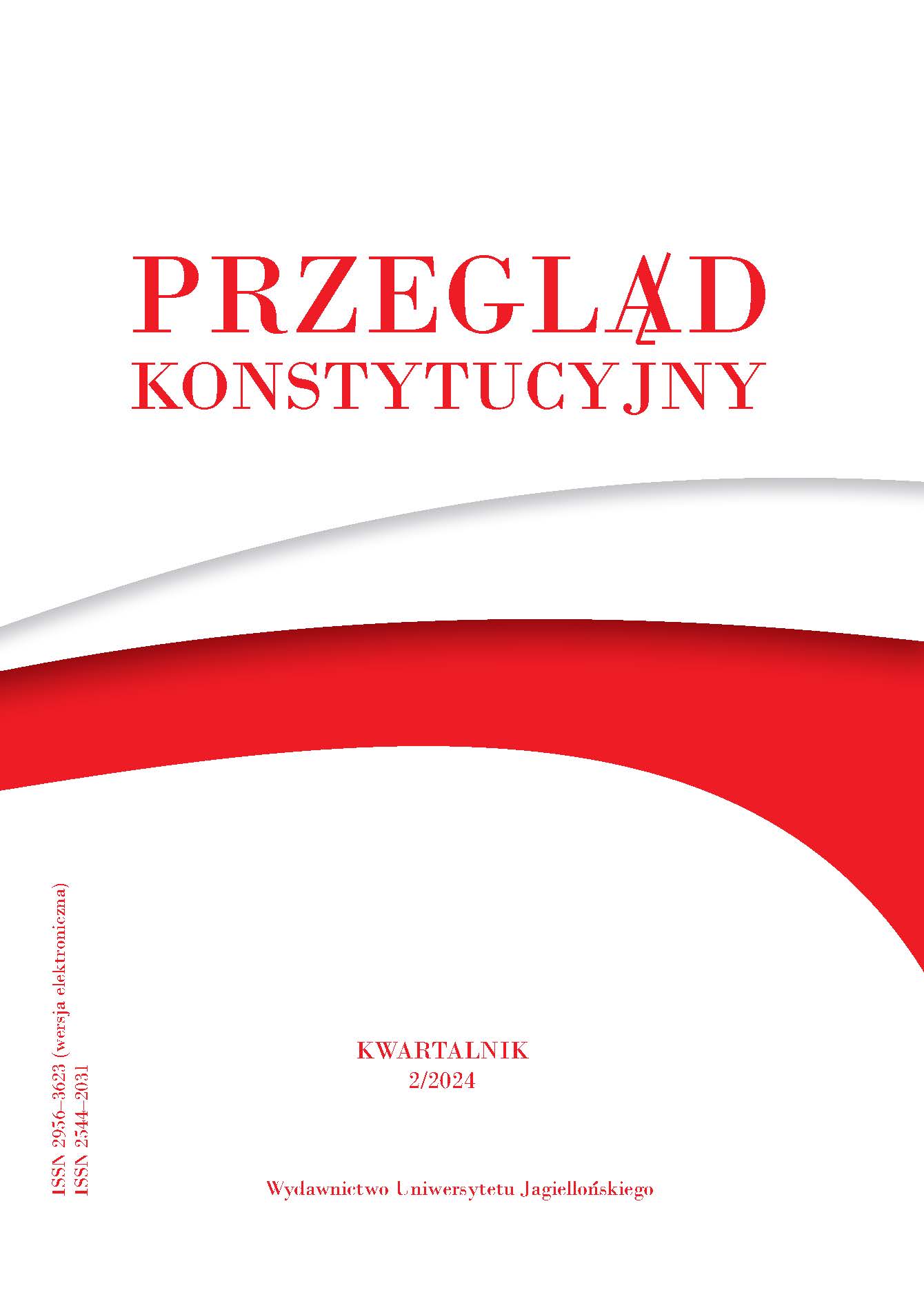Europejski Trybunał Praw Człowieka jako europejski sąd konstytucyjny
European Court of Human Rights as a European constitutional court
Author(s): Marcin SzwedSubject(s): Law, Constitution, Jurisprudence, Human Rights and Humanitarian Law, EU-Legislation
Published by: Wydawnictwo Uniwersytetu Jagiellońskiego
Keywords: ECtHR; ECHR; “European constitutional court”; rule of law
Summary/Abstract: The article presents arguments in favor of defining the European Court of Human Rights as a “European constitutional court,” and from that angle analyzes its approach to the rule of law crisis in Poland. Although the ECtHR does not rule based on constitution nor has the competence for abstract control of the “conventionality” of normative acts, voices in the literature have long argued that calling it a “European constitutional court” is not unfounded. There are several arguments supporting this view. The Court often indirectly or directly analyzes the “conventionality” of national legislation when addressing specific cases. Moreover, even though the ECtHR does not have the power to annul laws, its rulings frequently lead to legislative changes in European countries. The Court’s function cannot be narrowed down to resolving individual cases before it; through its jurisprudence, it develops new standards and significantly affects national legal systems. However, the ECtHR’s role as a “European constitutional court” is limited by factors such as the substantive scope of the convention itself, the principle of subsidiarity, and the related doctrine of the margin of appreciation. In recent years, a significant challenge for the ECtHR as a “European constitutional court” has been the rule of law crisis in Poland. Given the actual paralysis of the Polish Constitutional Tribunal, the ECtHR had to resolve a number of important issues, especially attacks on judicial independence. Often, violations of the Convention concerning threats to judicial independence resulted from the Polish authorities violating norms derived from the Polish Constitution and undertaking actions in bad faith, which the Court itself recognized in its rulings. In this way, it contributed not only to the protection of freedoms and rights guaranteed in the Convention but also to the defense of the Polish Constitution.
Journal: Przegląd Konstytucyjny
- Issue Year: 2024
- Issue No: 2
- Page Range: 51-76
- Page Count: 26
- Language: Polish

